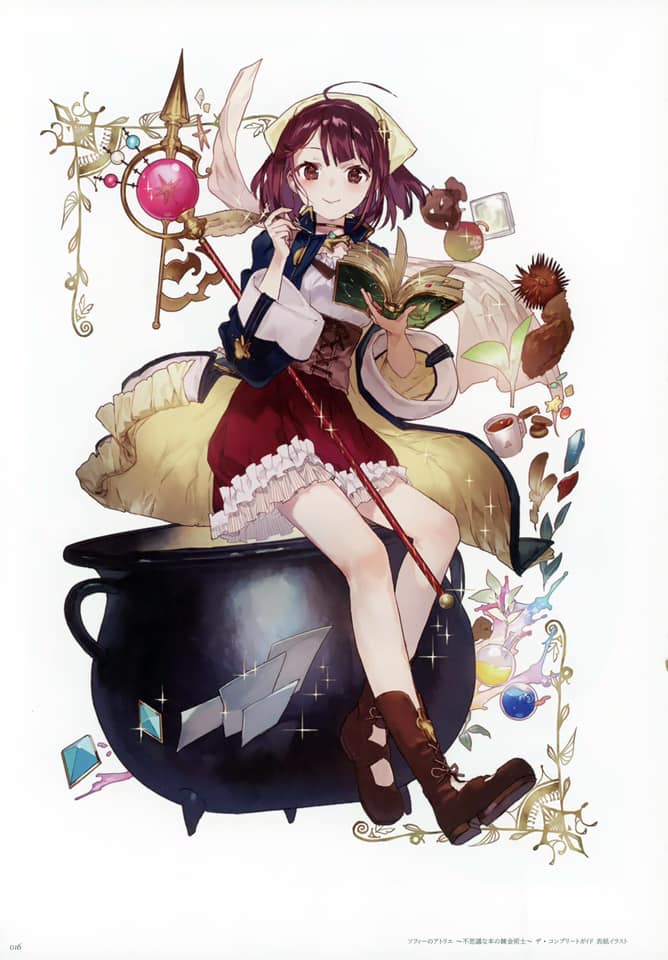ok, pretentious time!
I already mentioned before the connection between Sophie and her arc being a quest for knowledge (the cauldron and the recipes), that alone it's clear to know there is a motif in there, but it is actually more deep than that.
I already mentioned before the connection between Sophie and her arc being a quest for knowledge (the cauldron and the recipes), that alone it's clear to know there is a motif in there, but it is actually more deep than that.
I remembered the theme that plays when you fight her in Firis and L&S is called "Beyond Wisdom" which makes it more obvious, and that theme is an arranged version of Phronesis the opening theme of Sophie
but wait, Phronesis huh?
The lyrics speak for themselves, but the basic concept is:
"Phronesis (Ancient Greek: φρόνησῐς, romanized: phrónēsis), a type of wisdom relevant to practical action, implying both good judgement and excellence of character and habits"
https://en.wikipedia.org/wiki/Phronesis
"Phronesis (Ancient Greek: φρόνησῐς, romanized: phrónēsis), a type of wisdom relevant to practical action, implying both good judgement and excellence of character and habits"
https://en.wikipedia.org/wiki/Phronesis
A more modern concept would be Prudence, which has 2 definitions that caught my attention.
"skill and good judgment in the use of resources" which is pretty obvious in this series and
"The ability to judge between virtuos and vicious actions"
https://virtuefirst.info/virtues/prudence/
"skill and good judgment in the use of resources" which is pretty obvious in this series and
"The ability to judge between virtuos and vicious actions"
https://virtuefirst.info/virtues/prudence/
This second one I think works better in the context of the games because, for some reason Sophie is the only game with a "real villain", and I think this may be the reason.
Both Luard and Sophie have the same goal, the pursuit of knowledge, but Luard's actions are vile, he doesn't give a shit about killing the planet and its resources, he only wants to advance his alchemy.
Sophia and Phronesis are also important in Christian theory which led me to concepts such as "Holy Wisdom" (Ἁγία Σοφία) and "Chokhmah"
https://en.wikipedia.org/wiki/Holy_Wisdom
https://en.wikipedia.org/wiki/Holy_Wisdom
This last bit is really a stretch but both Sophia and Phronesis are femenine figures in the old testament and this is the description of wisdom in the book of Salomon:
"for in her is an understanding spirit holy, one only, manifold, subtil, lively, clear, undefiled, plain, not subject to hurt, loving the thing that is good quick, which cannot be letted, ready to do good"
"Kind to man, steadfast, sure, free from care, having all power, overseeing all things, and going through all understanding, pure, and most subtil, spirits."
"And being but one, she can do all things: and remaining in herself, she maketh all things new: and in all ages entering into holy souls, she maketh them friends of God, and prophets."
sounds eerily familiar right? still, I don't think they actually based the character in this, but when dealing with similar ideas the coincidences would be inevitable.
So yeah, I've been reading these things since yesterday and I'm leaving behind some other fascinating things, like Sophiology and even some feminist theory, because I still need to read more of that and I didn't find any significant connection (yet, lol)

 Read on Twitter
Read on Twitter


